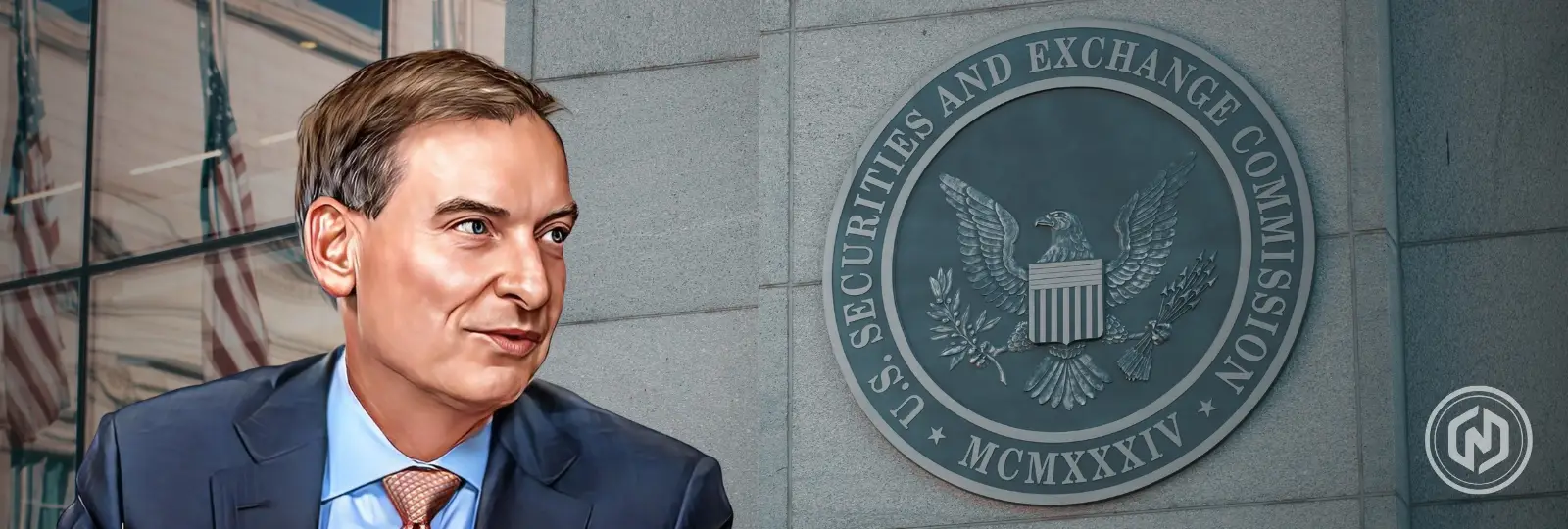Key Highlights
- On November 12, SEC Chair Paul Atkins unveiled a new “token taxonomy” framework that clearly classifies digital assets, which also differentiates securities from commodities
- The announcement comes amid ongoing efforts for Congressional crypto legislation, like Senator Lummis’s bill to create a de minimis tax exemption for small Bitcoin transactions
- The framework also highlights that a token’s status is not permanent
The head of the U.S. Securities and Exchange Commission (SEC) has revealed a clear plan to regulate cryptocurrencies. On November 12, SEC Chairman Paul Atkins introduced a new “token taxonomy” framework.
I was honored to give the keynote at the @PhiladelphiaFed’s Ninth Annual Fintech Conference this morning. My remarks outlined the next steps in the @SECgov’s Project Crypto and what to expect in the coming months. pic.twitter.com/WI79ANJrfD
— Paul Atkins (@SECPaulSAtkins) November 12, 2025
“In the coming months, I anticipate that the Commission will consider establishing a token taxonomy that is anchored in the longstanding Howey investment contract securities analysis, recognizing that there are limiting principles to our laws and regulations,” Paul Atkins stated in the official statement.
What is Token Taxonomy
Chair Atkins was clear that this new framework comes from existing law, specifically the “Howey Test.” This is a legal standard created by the Supreme Court in 1946. The test defines an investment contract as a security if it involves an investment of money in a common enterprise with profits expected from the work of others.
Atkins explained that the majority of crypto assets are not securities; however, a token’s status can change over time. If a network becomes truly decentralized and its creators no longer control it, the token can transition out of being a security.
“While most crypto assets are not themselves securities, crypto assets can be part of or subject to an investment contract. These crypto assets are accompanied by certain representations or promises to undertake essential managerial efforts that satisfy the Howey test,” Paul Atkins said.
The new token taxonomy creates clear categories for different types of digital assets.
Tokens would only be classified as securities if they are sold with “explicit and unambiguous” promises of profit by their creators. Other categories would fall outside the SEC’s direct oversight.
Digital commodities would include utility tokens used to access a network, while Digital collectibles would cover things like art-based NFTs as well as some memecoins. Digital instruments would include stablecoins, as long as they are not marketed as investments.
Such categorization of digital products is expected to bring much-needed clarity to help exchanges know which tokens they can list and under which regulator’s rules.
Paul Atkins Highlights SEC’s Legislative Efforts
In his official statement, Paul Atkins also mentioned the plan that can bring practical benefits for the industry. Innovators could receive a “package of exemptions”, which can make it easier to raise capital without the full, costly process of a securities registration.
“By streamlining this process, innovators in the blockchain space can focus their energies on development and user engagement rather than navigating a maze of regulatory uncertainty. Additionally, this approach would cultivate a more inclusive and dynamic ecosystem—one in which smaller and less resource-intensive projects are free to experiment and to thrive,” he said.
Atkins has also highlighted the ongoing legislative efforts under U.S. President Donald Trump for the crypto market structure, which is expected to be passed by the end of the year.
For example, on Monday, the Senate Agriculture Committee unveiled a discussion draft that creates guidelines for the cryptocurrency sector in the U.S.
However, he made clear that this new clarity does not mean that this will provide liberty to crypto innovations or weaker enforcement. Instead, the agency’s plan is to draw clear lines and explain them in clear terms.
“This framework is a commitment to integrity and intelligibility. To the entrepreneur who wants to build here in America and is willing to comply with clear rules, we should offer more than a shrug, a threat, or a subpoena. To the investor trying to discern the difference between buying a tokenized share of stock and buying a collectible in a video game, we should offer more than a web of enforcement actions,” he said.
The proposal is expected to go for formal voting by the full Commission in the upcoming months.


